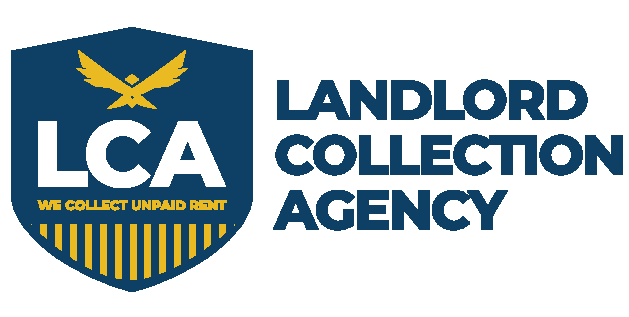COLLECTION PROCESS
COLLECTION PROCESS
After all attempts to collect past due money owed by tenants have failed, landlords can turn to the landlords Collection Agency to recover this debt.
To file a collection account, we need:
• A signed agreement from the landlord authorizing us to collect the debt
• Tenant’s full name
• Tenant’s date of birth
• Tenant’s Social Security Number
• Tenant’s address
• The date that the account first became delinquent
• Amount owed - You must upload the Proof of Debt ( ie. Tenant Ledger Sheet, Housing Court Judgment, Security Deposit Accounting)
You must also upload Proof of Business Relationship ( Signed Lease, Signed Landlords Rules & Regulations or a Rent Receipt)
This information is entered from the user dashboard once you create an account. There is no fee to create a landlord account and we charge $19.95 for placing a tenant into collections. We retain 33% of all monies recovered and disburse 67% to our clients.
We recommend that our clients always have on hand to show as evidence:
• Tenant apartment rental application
• Lease agreement
• Itemized list of past due amounts
• A timeline of attempts to contact and when notice was given of late payments or eviction
• A signed agreement from the landlord authorizing us to collect the debt
• Tenant’s full name
• Tenant’s date of birth
• Tenant’s Social Security Number
• Tenant’s address
• The date that the account first became delinquent
• Amount owed - You must upload the Proof of Debt ( ie. Tenant Ledger Sheet, Housing Court Judgment, Security Deposit Accounting)
You must also upload Proof of Business Relationship ( Signed Lease, Signed Landlords Rules & Regulations or a Rent Receipt)
Once a landlord signs our client engagement agreement and enters the tenant details into our website, we are notified that a new collection account has been filed.
We are required by law to contact the tenant, and we do so by sending a demand letter containing:
• The original creditor’s name
• The amount owed
• Instructions for how to proceed
• The account number we created for this account
• A unique PIN number for their account to access our system
This provides the debtor tenant with the required information regarding next steps. The tenant can contact us by email, letter or a call to state the account is not accurate, settle the debt or ignore the collection. If they dispute the debt, we must validate all the information with the landlord before we take the next step.
After the statutory 30-day dispute period has lapsed and the account is valid, we then upload the file to the credit bureau to be listed as an active collection on the tenant debtor’s credit report. Active collections have a negative impact on the consumer's credit score. Accounts placed for collections will remain on their report for 7 years from the date the account first became delinquent.
All Landlord Collection Agency accounts are also reported to TenantTracks, a consumer reporting agency, and appear on their screening reports as Negative Rental Performance and are notated as “owing former landlord money.”
The process of successfully collecting tenant debt requires cooperation of the debtor. Unlike a small claims court judgement which can compel payment from employers or levy bank accounts, payment of collection debt is done voluntarily.
There are distinct advantages of using collections over the courts in several areas:
• The upfront costs to file are much less expensive using Collections
• Small claims judgements do not show up on consumer’s credit reports
• Many states protect debtor’s assets and pay from garnishment
• Collections require little landlord effort and is faster than going to court
